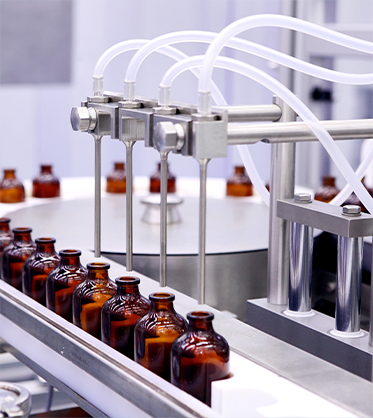Choosing the right liquid filling machine is essential for businesses dealing with liquids such as beverages, oils, cosmetics, pharmaceuticals, and chemicals. A liquid filling machine is a specialized equipment designed to accurately and efficiently fill containers with various types of liquids such as beverages, oils, pharmaceuticals, chemicals, and cosmetics. Here are key factors to consider when selecting a liquid filling machine:
- Type of Liquid: Consider the viscosity, consistency, and characteristics of the liquid you are filling. Some liquids may require specific filling technologies such as gravity filling, piston filling, peristaltic filling, or volumetric filling to ensure accurate and efficient filling.
- Production Volume: Determine your production capacity in terms of bottles or containers filled per hour or day. Choose a machine that can handle your desired output without causing bottlenecks in your production line.
- Container Size and Shape: Ensure that the machine is compatible with the range of containers you use, whether they are bottles, jars, pouches, tubes, or cans.
- Filling Accuracy: Look for a machine with precise filling controls, adjustable fill volumes, and mechanisms to minimize foaming or splashing.
- Filling Speed: High-speed machines are suitable for large-scale production, while slower machines may be sufficient for smaller batches or specialized products.
- Automation Level: Decide on the level of automation based on your production needs and workforce availability. Options range from manual filling machines to semi-automatic and fully automatic systems with conveyor belts and PLC controls.
- Cleaning and Maintenance: Choose a machine with easy-to-clean components, sanitary design features, and quick changeover capabilities for different products.
- Product Compatibility: Ensure that the machine is compatible with the type of liquid you are filling, including considerations such as corrosiveness, flammability, and temperature sensitivity.
- Regulatory Compliance: Ensure that the liquid filling machine complies with industry standards, regulations, and safety requirements for food, pharmaceuticals, cosmetics, or chemical products.
- Cost and ROI: Evaluate the initial cost of the machine, ongoing operational expenses, and the return on investment (ROI) in terms of increased productivity, reduced labor costs, and improved product quality.





Comments